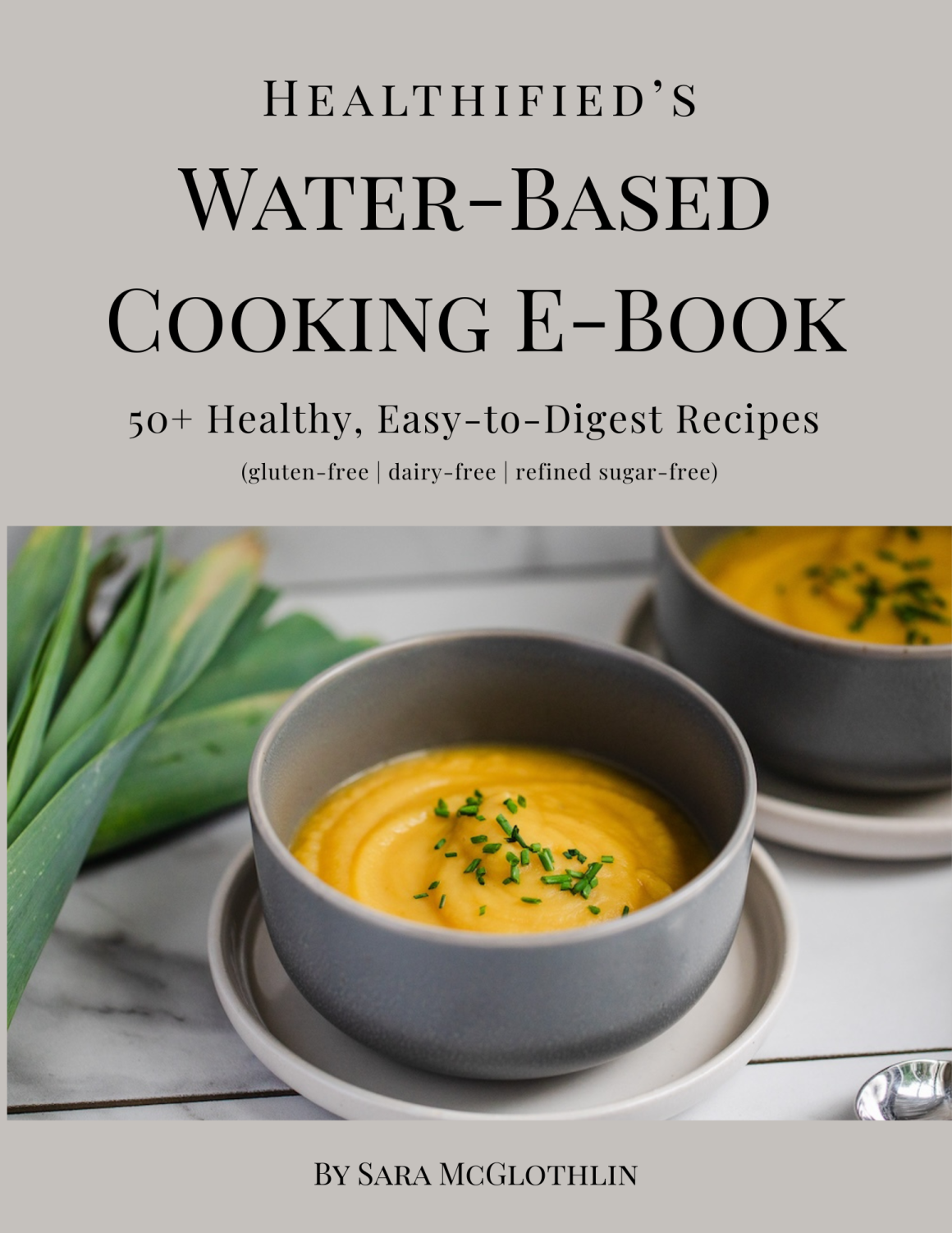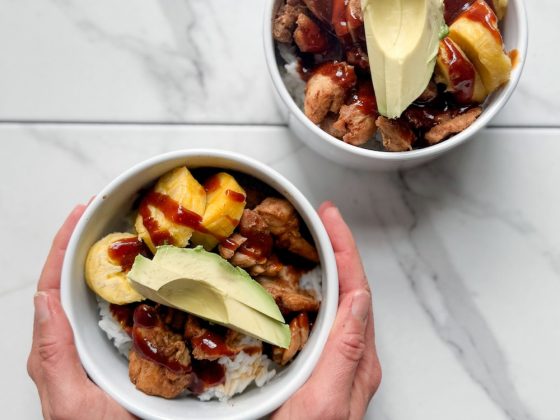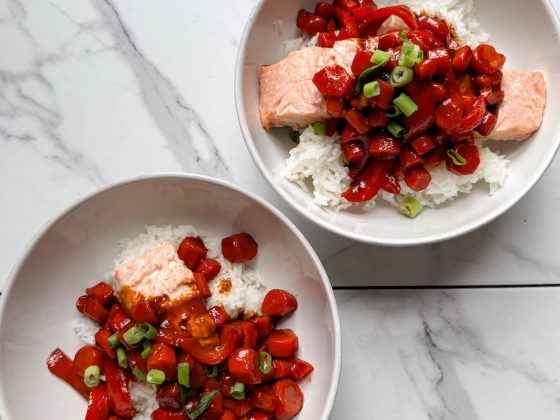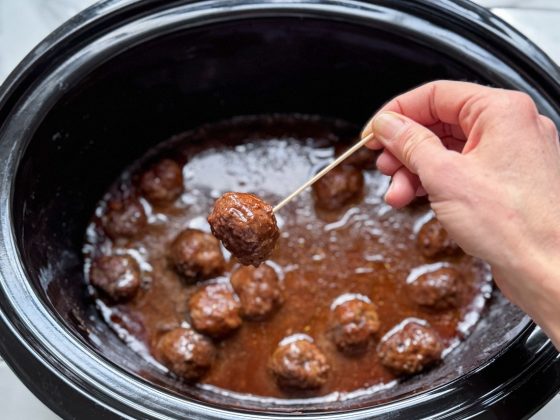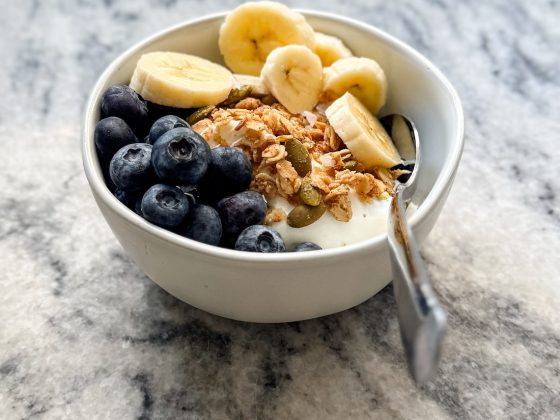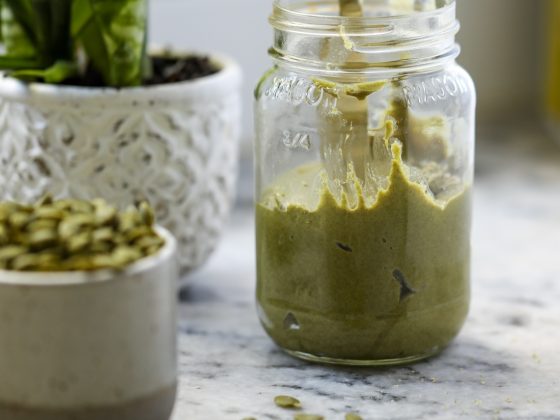The other day, I felt four months pregnant for most of the morning – my stomach was so bloated and uncomfortable. I knew it was because I had eaten something the night before that didn’t sit well with me (ever been there?). I’ve been feeling so good lately that I got a little overconfident. For me, the culprits were cauliflower and peas. Since my SIBO diagnosis, I’ve avoided cruciferous veggies and legumes for months, but I thought maybe steamed cauliflower would be better tolerated. Turns out, not so much. Lesson learned, and now I know to steer clear of those foods moving forward.
Instead of getting frustrated, I used it as an opportunity to return to the basics: simple, easy-to-digest meals that I know bring my system back into balance. Whenever my stomach feels off, eating this way helps me feel lighter, much less bloated, and back to a good feeling place by the end of the day. The next morning I felt good as new.
Why Gut-Friendly Meals Matter
My husband jokes that I am “too in tune” to my body. I don’t necessarily see this is a bad thing – I would rather have a strong mind-body connection rather than a weak or non-existent one; I will say however, when I don’t feel good physically, it affects me mentally and emotionally as well.
This being said, when your digestion is off, it can affect more than just your stomach. Bloating, discomfort, and fatigue are often signs that your body is struggling to process what you’ve eaten. By focusing on gut-friendly meals, you’re not just easing symptoms in the moment, you’re supporting your overall well-being.
I remember hearing a quote early on in my nutrition training: “Every time you eat, you’re either feeding disease or fighting it.” While that might sound a little dramatic for this context, the sentiment still applies to gut health. Every meal is an opportunity – you can either support your digestion or make it work harder.
A healthy gut helps regulate energy, mood, and immunity. The right foods calm inflammation, reduce fermentation in the digestive tract, and give your microbiome what it needs to thrive. The wrong foods have the opposite effect. Instead of triggering discomfort, gut-friendly meals are designed to be easy to digest, nutrient-dense, and supportive of our short-term and long-term health. Making these choices consistently can turn mealtime from something stressful into something supportive.
What I Ate in a Day to Soothe My Upset Stomach
On this particular day, my goal was to focus on easy-to-digest meals to lessen the bloat and get back to feeling better. For most of the morning, my stomach looked like this:

Thankfully, after months of experimentation in this gut healing journey, I have a repertoire of meals I can turn to in these instances.
Breakfast: Protein millet bowl with pumpkin seed butter and stewed blueberries.
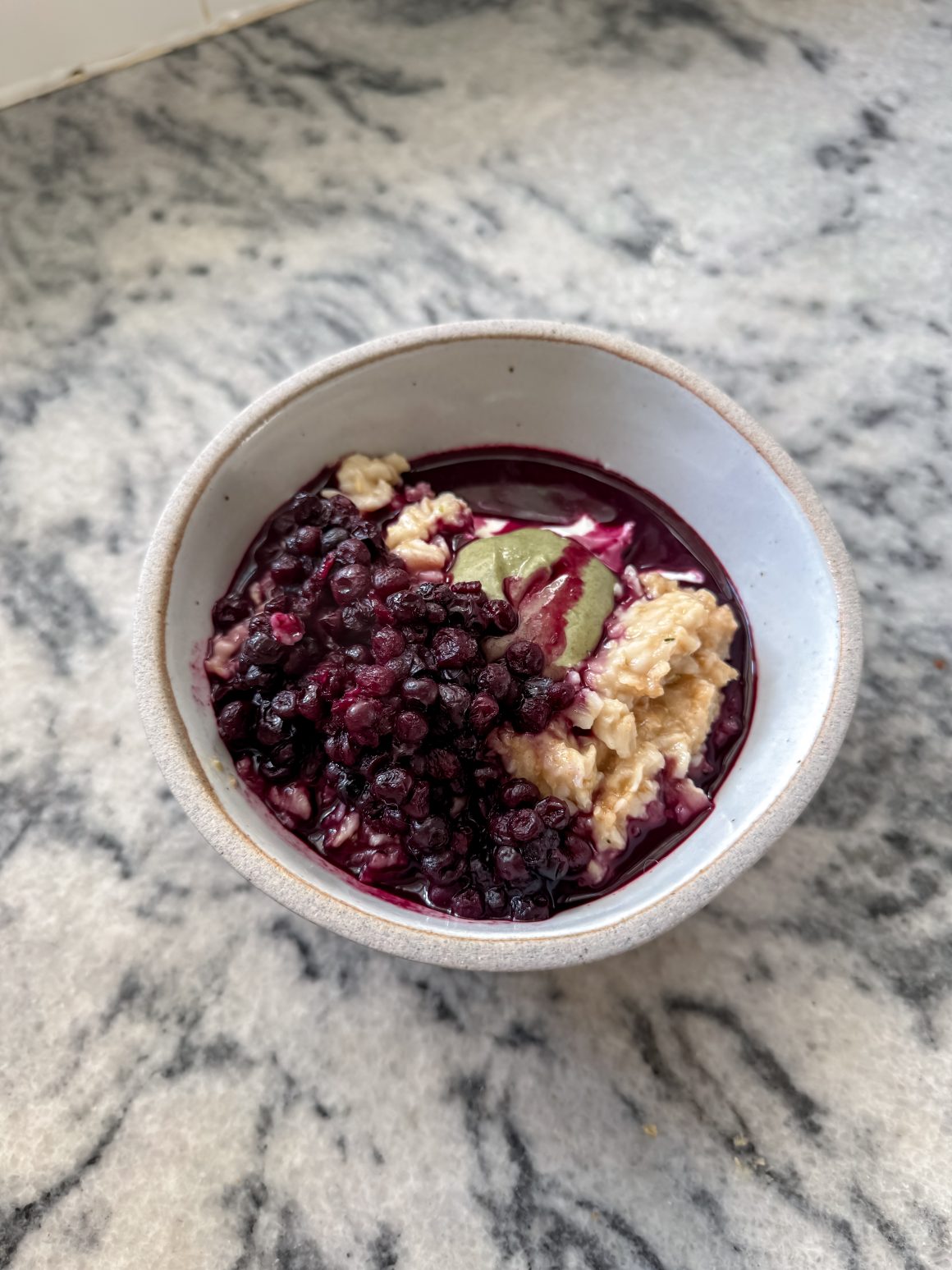
Lunch: Simple plate of my homemade “chicken salad,” steamed and cooled white sweet potato, grapes (to check out how I make my chicken salad, see this reel on my Instagram!)
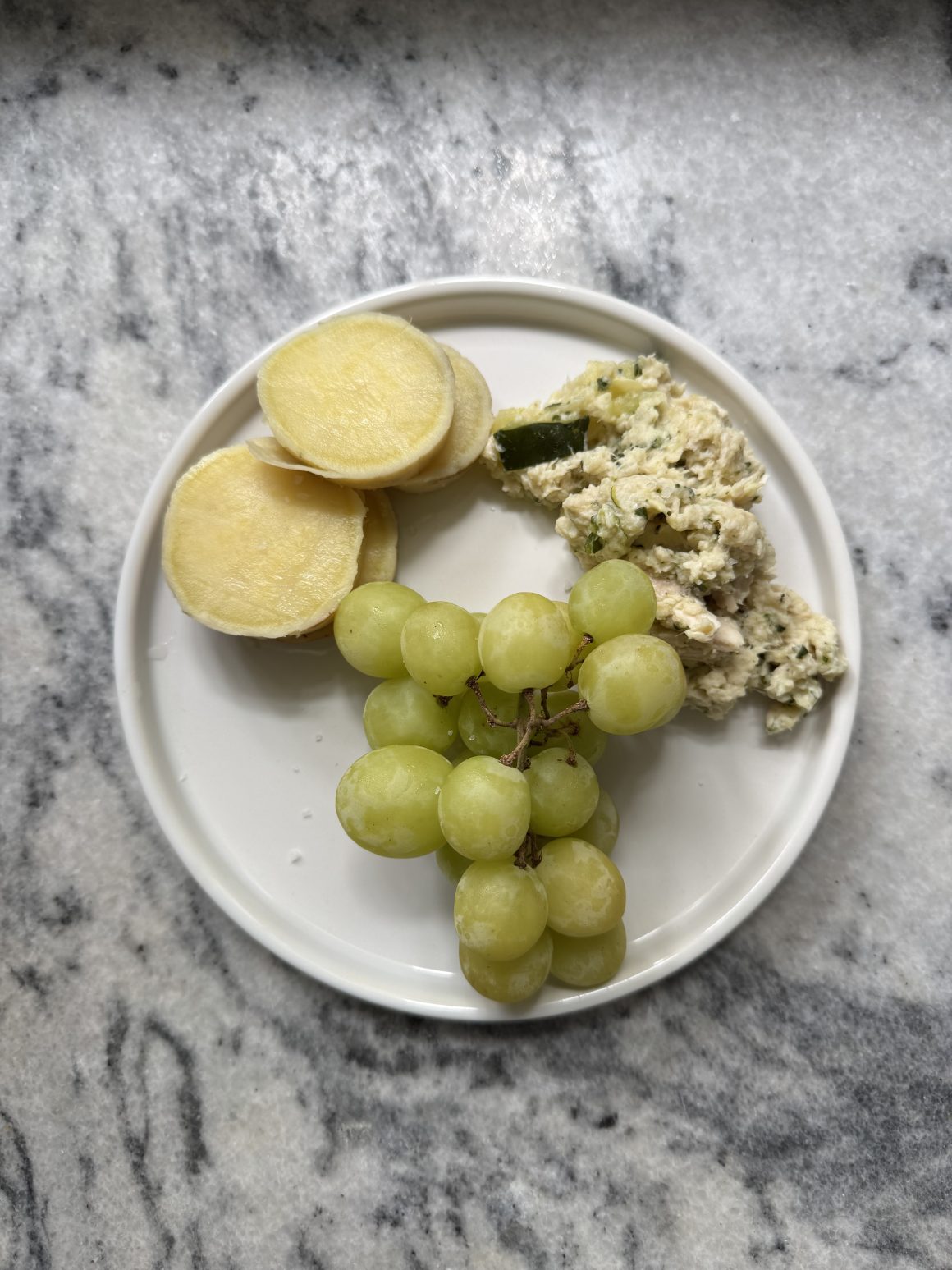
Snack: Painterland Sisters yogurt, pumpkin seeds, stewed mango
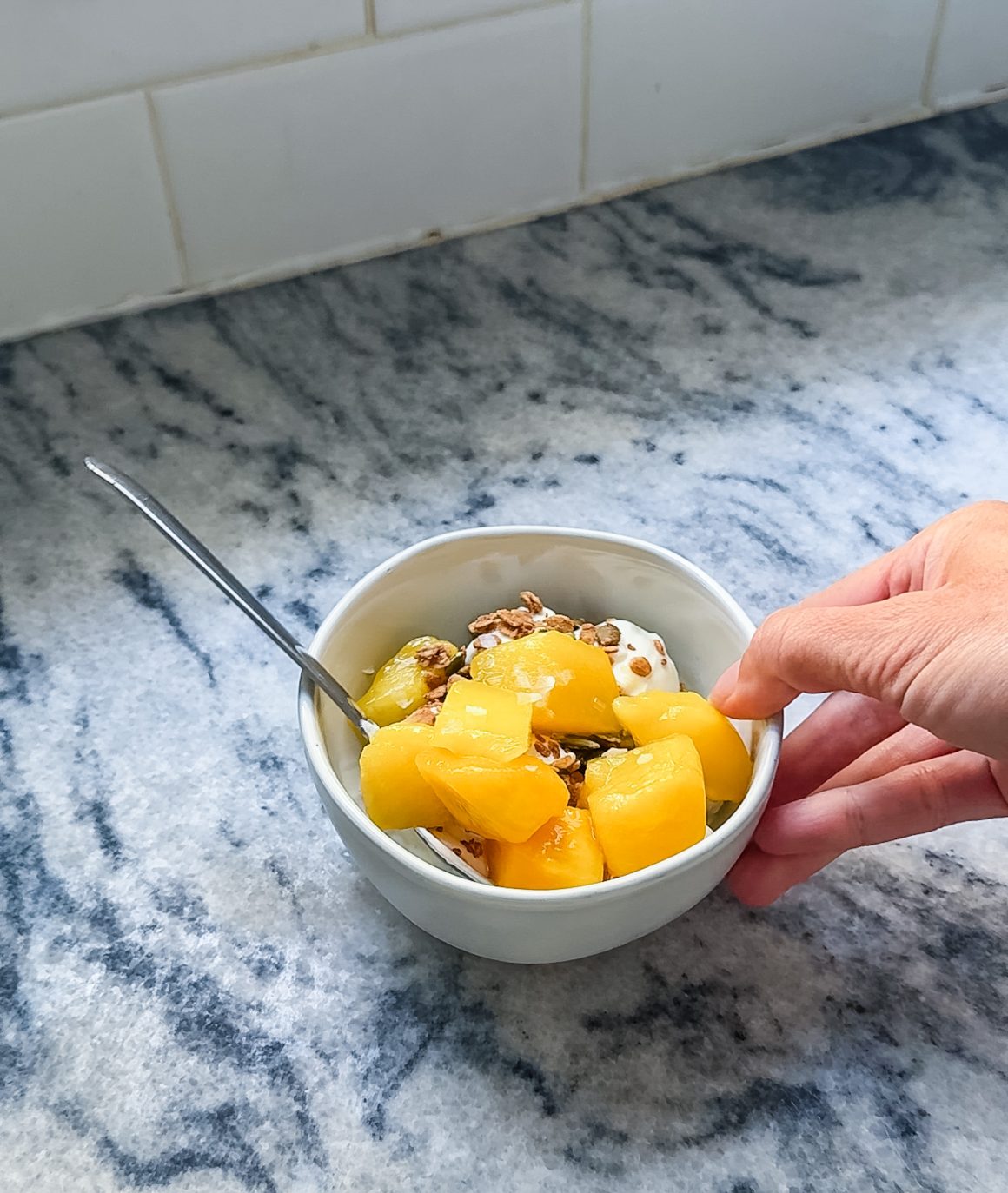
By this point in the day, my bloating had decreased significantly, and I was feeling so much better! I had taken a walk between breakfast and lunch, which helped as well.

Dinner: More chicken salad in a kabocha squash bowl. I have fallen in love with kabocha squash! Ever since I realized the benefits (especially from a digestive standpoint), I roast it on repeat. Simply cut in half, scoop out the seeds, lay flat on a baking sheet, and roast for about 40 – 45 minutes at 400 degrees F. No oil necessary!
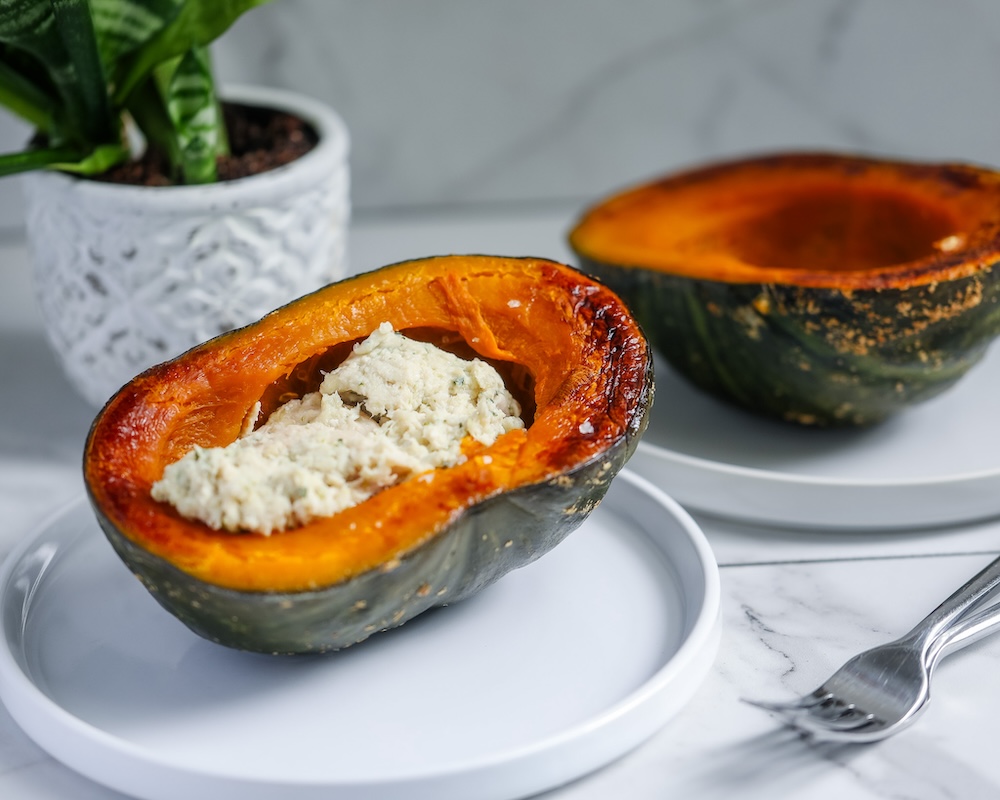
By the next morning, I was feeling back to normal. This goes to show how effective just one day of gut-supportive eating can be.

Tips for Eating When Bloated
It is important to note that the way that I eat to soothe my upset stomach won’t necessarily work for you. However, there are some fundamental takeaways:
1. Keep meals simple.
Stick to easy-to-digest staples like white rice, well-cooked vegetables, water-cooked proteins, or broths. These foods give your body nutrients without adding more digestive stress.
2. Choose cooking methods that lighten the load
I am so grateful I discovered water-based cooking! Steaming, poaching, or simmering are gentler on digestion. It helps me cut down on the fat, which makes my digestive symptoms worse. Water-based cooking helps reduce the risk of triggering more bloating.
3. Eat slowly and mindfully
How we eat is so underrated. Chewing thoroughly and putting your fork down between bites can help your body digest more efficiently, lowering the chance of gas and discomfort.
4. Watch portions (but don’t restrict)
Large meals can overwhelm the gut. Smaller, balanced portions spread throughout the day are often easier to tolerate when you’re bloated.
5. Sip slowly and hydrate
Hydration is important. Warm teas or small sips of water alongside meals are gentler on the stomach. I would avoid carbonated beverages if you are bloated.
6. Listen to your body
Everyone’s gut is different. Keep a mental note of foods and habits that both work for you and those that trigger symptoms. Over time, you’ll build your own personalized toolkit as I have.
Healthified Final Notes
If you’re dealing with bloating or an upset stomach, know that you’re not alone; small, mindful changes can make a big difference. Eating in a gut-friendly way isn’t about perfection or cutting out every food you love. It’s about tuning in, noticing what feels supportive, and giving your digestion the extra care it sometimes needs.
On days when my stomach feels off, I come back to basics: simple meals, water-based cooking methods, and lots of patience with myself. And here’s the best part: these meals can still be nourishing, flavorful, and satisfying. Remember – food can work for you, and bring you back to a more balanced place.
The goal isn’t just to ease discomfort in the moment, it’s to create a foundation of eating habits that help you feel lighter, and more energized over time. That is what food is for!
If this information resonated with you, you will love my e-book!
